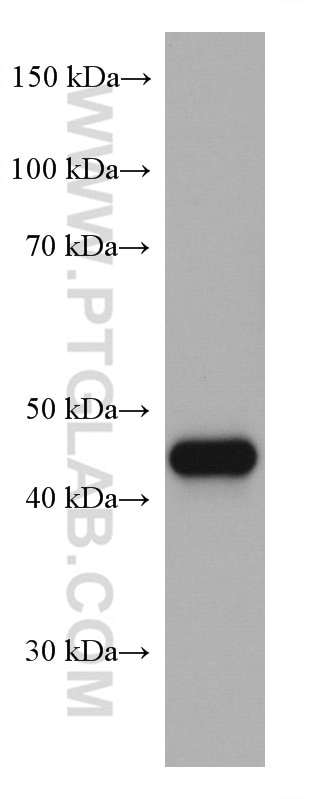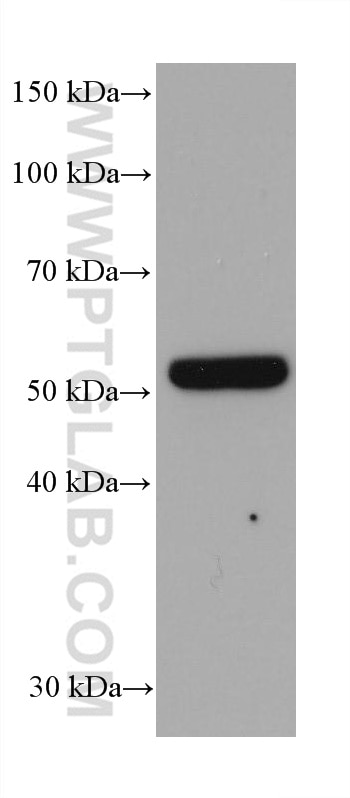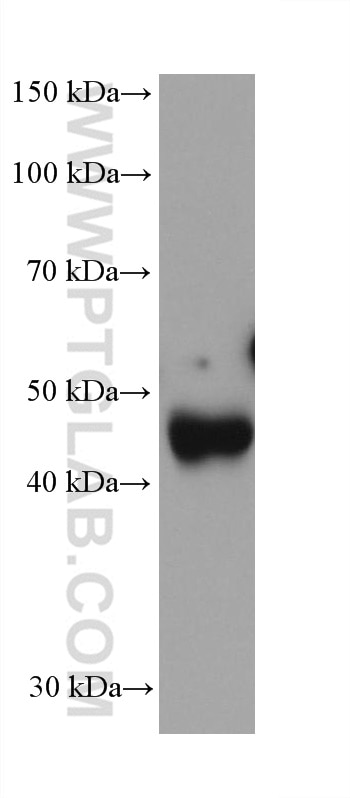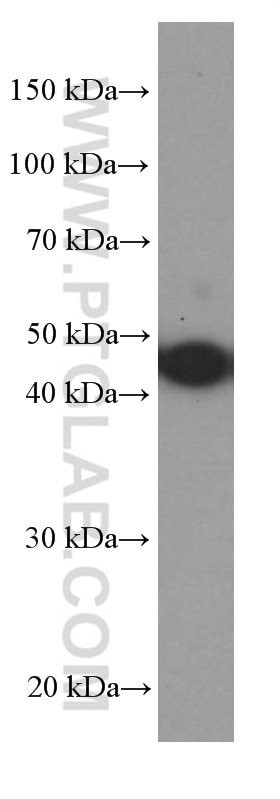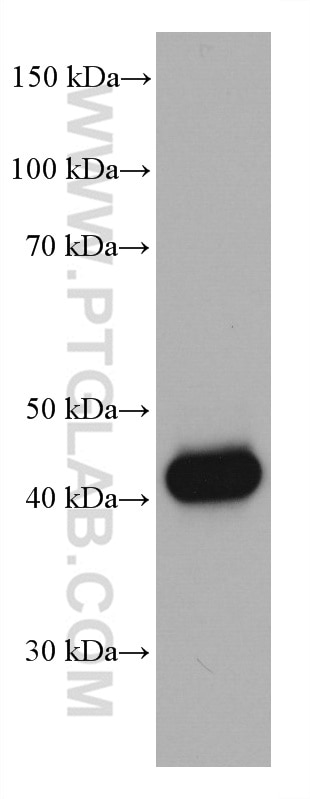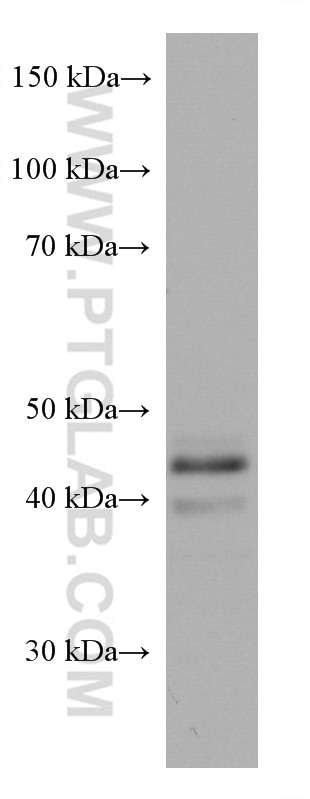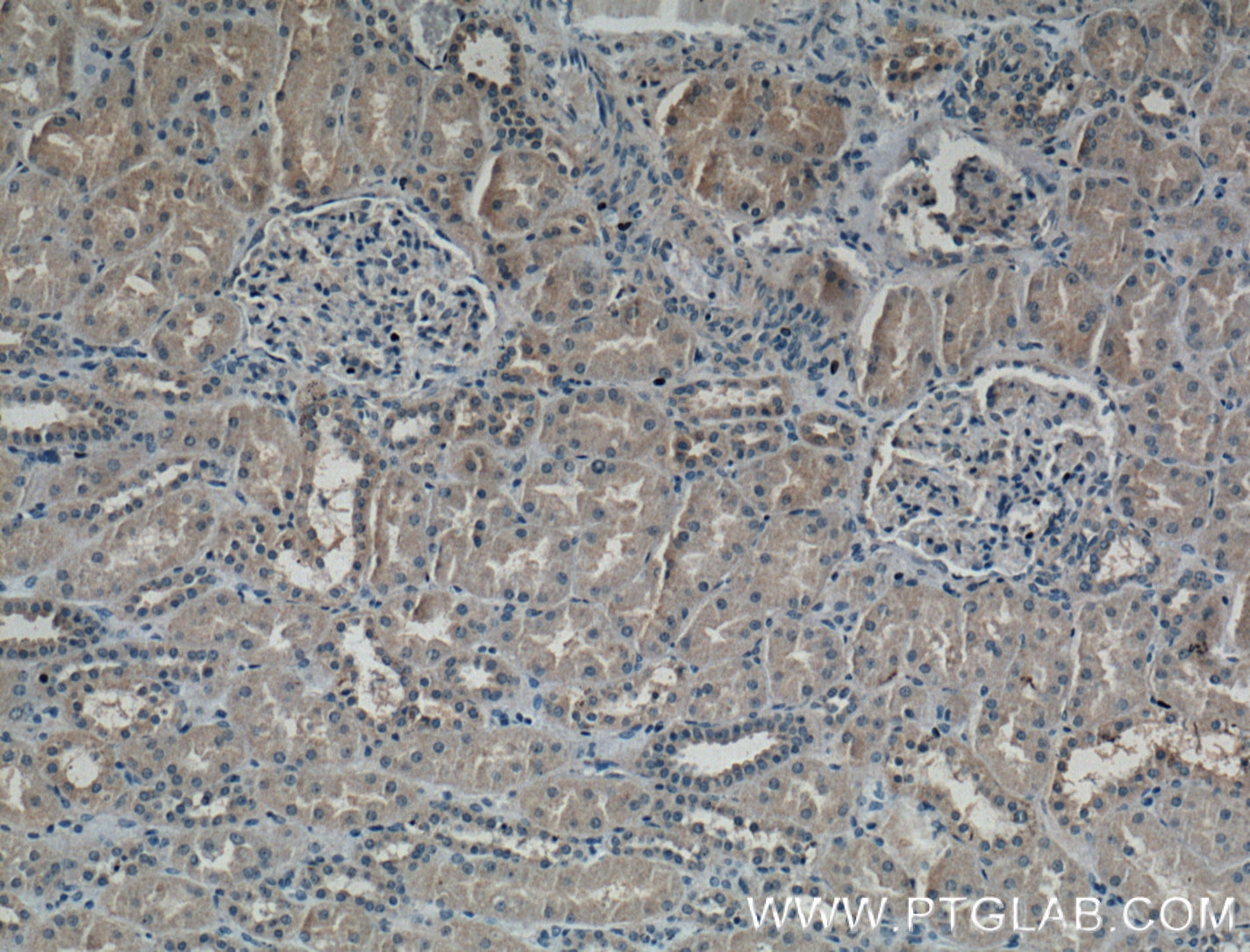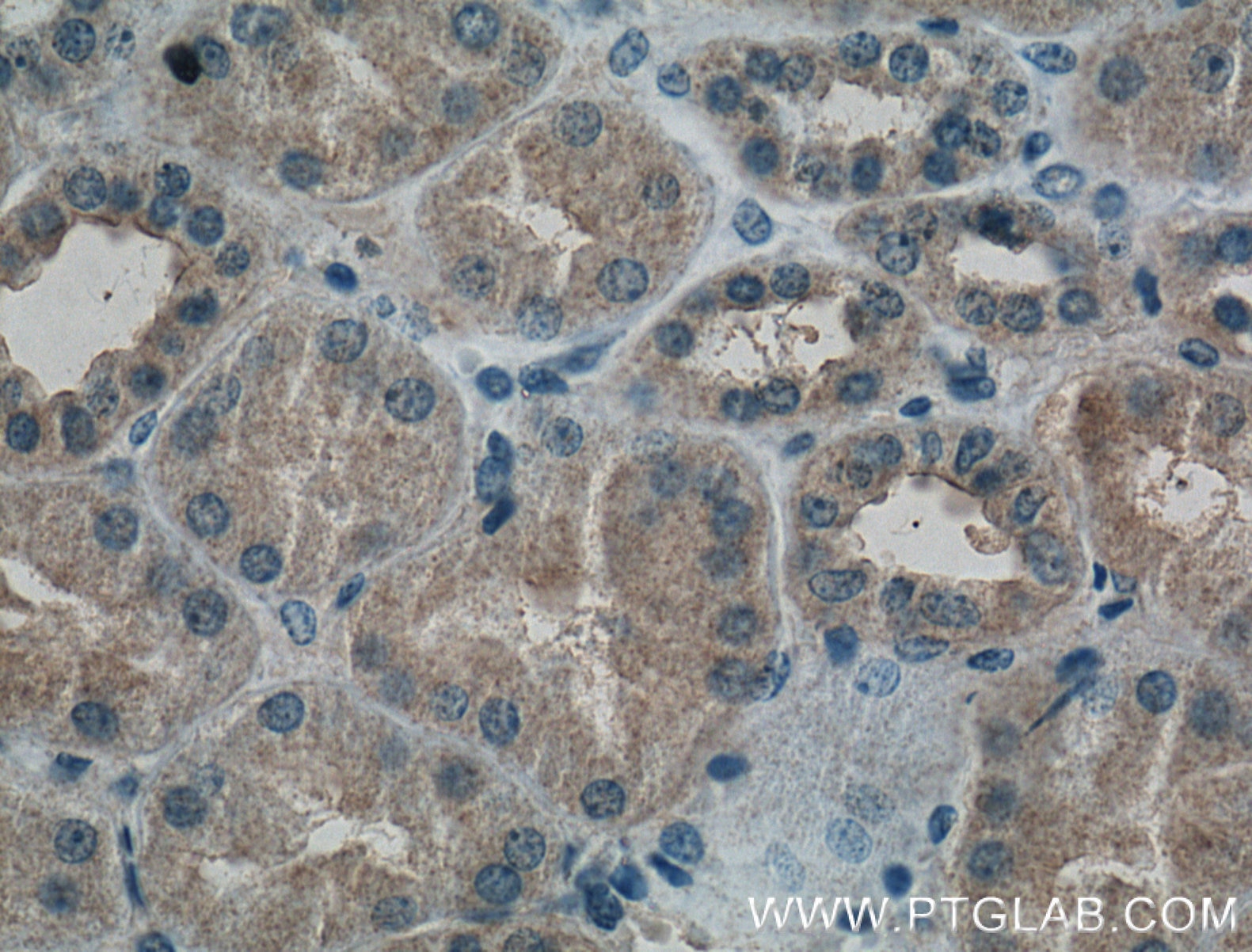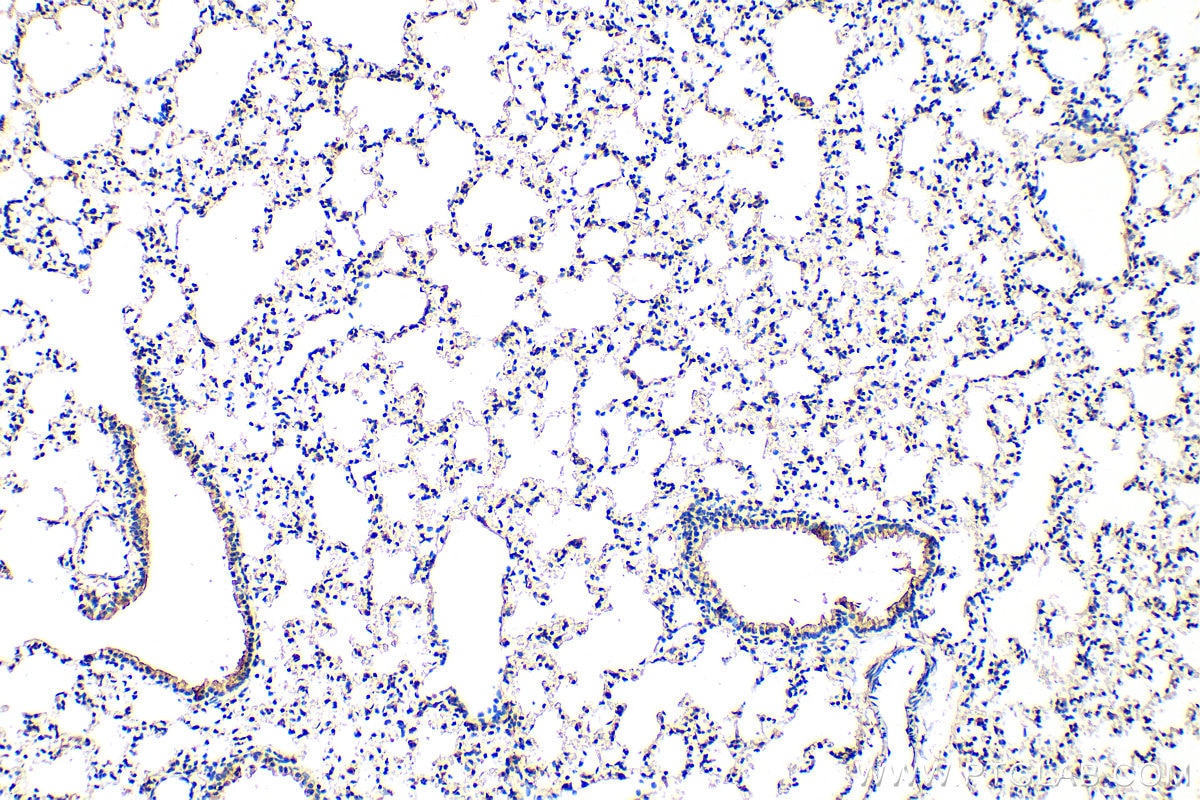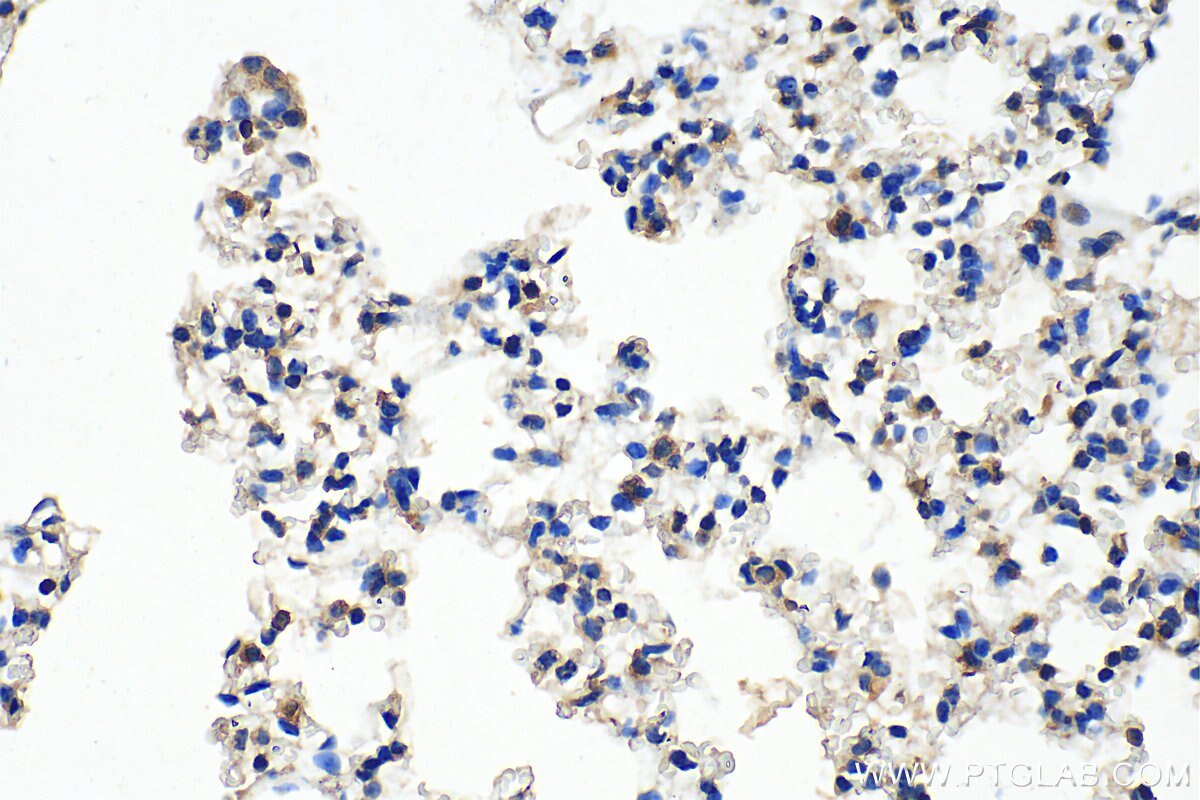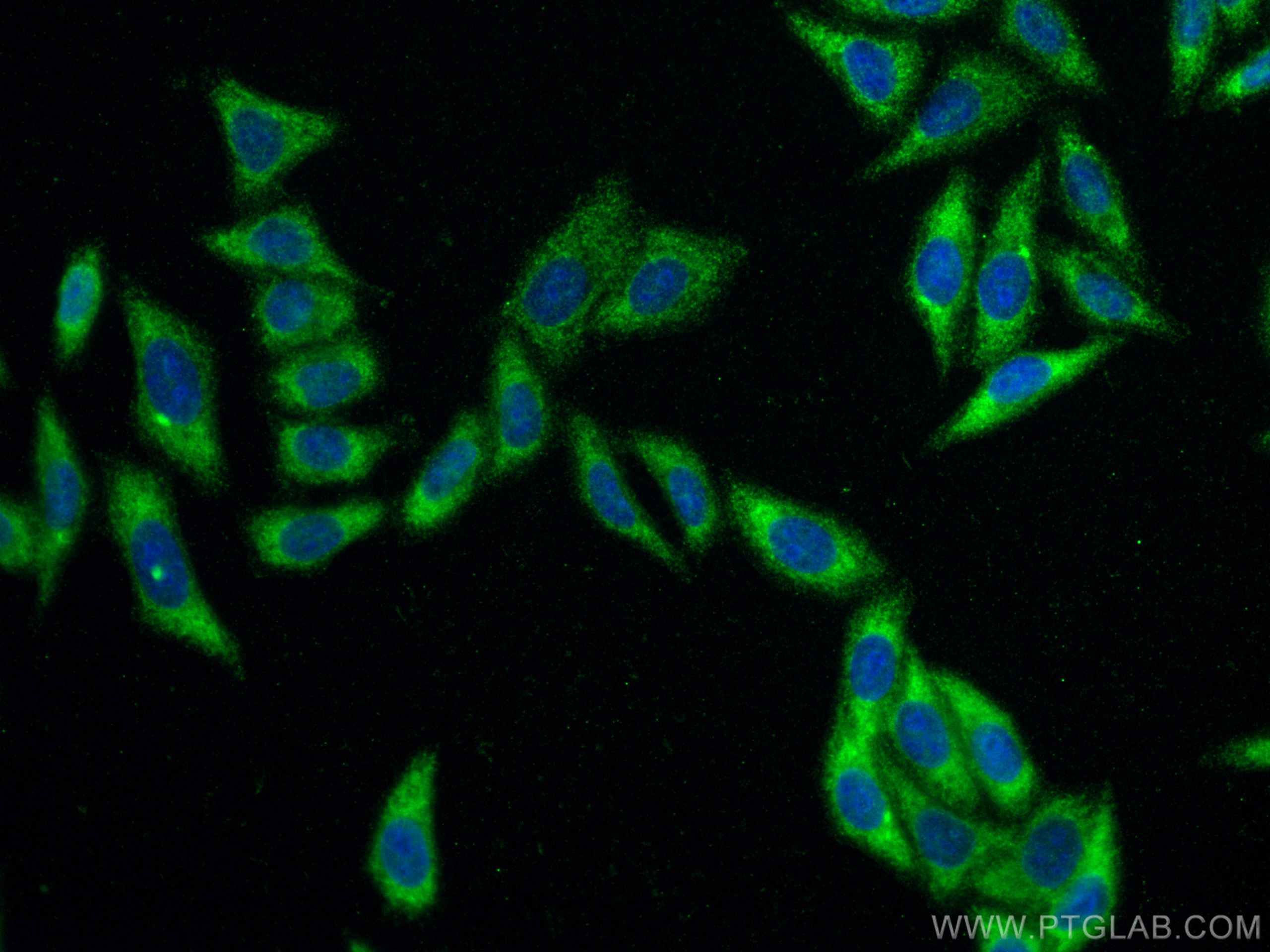Serpin E1/PAI-1 Monoklonaler Antikörper
Serpin E1/PAI-1 Monoklonal Antikörper für WB, IHC, IF/ICC, ELISA
Wirt / Isotyp
Maus / IgG1
Getestete Reaktivität
Hausschwein, human, Maus und mehr (1)
Anwendung
WB, IHC, IF/ICC, ELISA
Konjugation
Unkonjugiert
CloneNo.
1H4A5
Kat-Nr. : 66261-1-Ig
Synonyme
Geprüfte Anwendungen
| Erfolgreiche Detektion in WB | human peripheral blood platelets, HuH-7-Zellen, Hausschwein-Lebergewebe, SH-SY5Y-Zellen, U-251-Zellen |
| Erfolgreiche Detektion in IHC | humanes Nierengewebe, Mauslungengewebe Hinweis: Antigendemaskierung mit TE-Puffer pH 9,0 empfohlen. (*) Wahlweise kann die Antigendemaskierung auch mit Citratpuffer pH 6,0 erfolgen. |
| Erfolgreiche Detektion in IF/ICC | HepG2-Zellen |
Empfohlene Verdünnung
| Anwendung | Verdünnung |
|---|---|
| Western Blot (WB) | WB : 1:5000-1:50000 |
| Immunhistochemie (IHC) | IHC : 1:50-1:500 |
| Immunfluoreszenz (IF)/ICC | IF/ICC : 1:200-1:800 |
| It is recommended that this reagent should be titrated in each testing system to obtain optimal results. | |
| Sample-dependent, check data in validation data gallery | |
Veröffentlichte Anwendungen
| KD/KO | See 1 publications below |
| WB | See 20 publications below |
| IHC | See 4 publications below |
| IF | See 7 publications below |
Produktinformation
66261-1-Ig bindet in WB, IHC, IF/ICC, ELISA Serpin E1/PAI-1 und zeigt Reaktivität mit Hausschwein, human, Maus
| Getestete Reaktivität | Hausschwein, human, Maus |
| In Publikationen genannte Reaktivität | human, Hausschwein, Maus, Ratte |
| Wirt / Isotyp | Maus / IgG1 |
| Klonalität | Monoklonal |
| Typ | Antikörper |
| Immunogen | Serpin E1/PAI-1 fusion protein Ag22411 |
| Vollständiger Name | serpin peptidase inhibitor, clade E (nexin, plasminogen activator inhibitor type 1), member 1 |
| Berechnetes Molekulargewicht | 402 aa, 45 kDa |
| Beobachtetes Molekulargewicht | 45-50 kDa |
| GenBank-Zugangsnummer | BC010860 |
| Gene symbol | PAI-1 |
| Gene ID (NCBI) | 5054 |
| Konjugation | Unkonjugiert |
| Form | Liquid |
| Reinigungsmethode | Protein-G-Reinigung |
| Lagerungspuffer | PBS with 0.02% sodium azide and 50% glycerol |
| Lagerungsbedingungen | Bei -20°C lagern. Nach dem Versand ein Jahr lang stabil Aliquotieren ist bei -20oC Lagerung nicht notwendig. 20ul Größen enthalten 0,1% BSA. |
Hintergrundinformationen
SERPINE1, also named Plasminogen activator inhibitor type 1 (PAI-1), is a member of the serine protease inhibitor (SERPIN) superfamily. PAI-1 is the principal inhibitor of tissue plasminogen activator (tPA) and uPA, and hence is an inhibitor of fibrinolysis. Defects in this gene are the cause of plasminogen activator inhibitor-1 deficiency (PAI-1 deficiency), and high concentrations of the gene product are associated with thrombophilia. The mature 379-residue protein had a calculated unglycosylated molecular mass of 42.7 kD. Three putative glycosylation sites were found.
Protokolle
| PRODUKTSPEZIFISCHE PROTOKOLLE | |
|---|---|
| WB protocol for Serpin E1/PAI-1 antibody 66261-1-Ig | Protokoll herunterladen |
| IHC protocol for Serpin E1/PAI-1 antibody 66261-1-Ig | Protokoll herunterladenl |
| IF protocol for Serpin E1/PAI-1 antibody 66261-1-Ig | Protokoll herunterladen |
| STANDARD-PROTOKOLLE | |
|---|---|
| Klicken Sie hier, um unsere Standardprotokolle anzuzeigen |
Publikationen
| Species | Application | Title |
|---|---|---|
Nat Aging Single-cell and spatial RNA sequencing identify divergent microenvironments and progression signatures in early- versus late-onset prostate cancer | ||
Front Immunol Immunological characterization of stroke-heart syndrome and identification of inflammatory therapeutic targets | ||
Int J Mol Sci Identification of Impacted Pathways and Transcriptomic Markers as Potential Mediators of Pulmonary Fibrosis in Transgenic Mice Expressing Human IGFBP5. | ||
Am J Respir Cell Mol Biol ZMPSTE24 Regulates SARS-CoV-2 Spike Protein-enhanced Expression of Endothelial Plasminogen Activator Inhibitor-1. | ||
Clin Sci (Lond) Anti-anemia drug FG4592 retards the AKI-to-CKD transition by improving vascular regeneration and antioxidative capability. | ||
Phytomedicine Rhamnocitrin extracted from Nervilia fordii inhibited vascular endothelial activation via miR-185/STIM-1/SOCE/NFATc3. |
Rezensionen
The reviews below have been submitted by verified Proteintech customers who received an incentive for providing their feedback.
FH Mona (Verified Customer) (10-17-2021) | Paraffin-embedded hamster tissue from the lung. Antigen retrieval was performed with Tris-EDTA buffer (pH 9).
|
